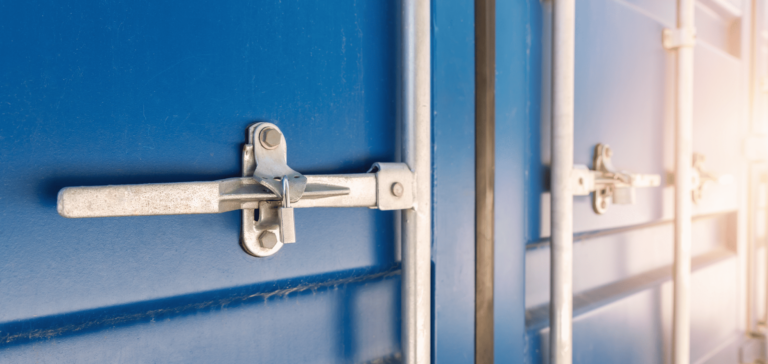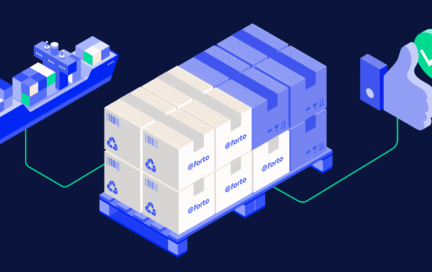Demurrage Definition: What is demurrage?
Delays in shipping are commonplace and as a result, customers may incur a multitude of extra charges that they have not catered for. One such extra charge is the Demurrage charge.
Demurrage is a charge levied by the shipping line to the importer in cases where they have not taken delivery of the full container and move it out of the port/terminal area for unpacking within the allowed free days.
Demurrage charges can vary from country to country as well as by carrier. To complicate matters further, fees are applied per container as well as per day after a designated free time which varies from carrier to carrier.
Demurrage charges may be caused due to a variety of reasons
Common among them are
- Consignee did not receive the documents in time for customs clearance
- Documentation received by the consignee is incorrect or insufficient
- The container has been stopped by customers, police, or other authorities for inspection of the cargo which may take longer than expected
- The consignee was unaware of the arrival of the cargo and was unable to do the customs clearance in time
- The consignee does not have the finances in order to clear the container in time
- Dispute between shipper and consignee
- Cargo received was not as per the sales order
Although these reasons may not be attributed to one entity like the consignee or shipper, usually the onus of demurrage and settlement of the same falls upon the consignee.
Demurrage is an avoidable cost but if not controlled, charges can soon overtake the price of the goods which will leave many consignees no option but to abandon the cargo.
How is demurrage calculated?
As a simple example, take a customer who imports 10×40’ containers of furniture, but the containers cannot be cleared due to the non-availability of correct documentation.
Let’s say the shipping line’s demurrage charge is USD 120/40’/day for the first 10 days after the expiry of free days.
If these containers stand for a period of say 7 days after the expiry of free days, these 10×40’ will incur a demurrage of US$ 120 x 10 x 7 = US$ 8400/- purely due to documentary delays.
As can be seen, any delays caused due to the above reasons will result in extra and avoidable costs for you.
10 tips to avoid demurrage charges
So, if you are the consignee, here are 10 tips to avoid demurrage charges
- If you are a first-time importer, understand the dos and don’ts as a first-time importer.
- Identify if there are any special requirements for the import of your cargo which may be held by customs or other authorities.
- If you have identified that your cargo requires some special permissions (like foodstuff, animal products, etc) then consider requesting the shipping line and/or shipper to arrange for extra free days to cater for this potential delay.
- Ensure that you have seen the product that you are buying so you don’t have a problem when it arrives and it doesn’t match your expectation.
- Ensure that you communicate clearly and regularly with your shipper and the shipping line about the status of the shipping documents and the shipment respectively. Shipping lines generally do not accept liability for the non-notification of your cargo’s arrival.
- If your shipment is under a Letter of Credit, then it is imperative that the time taken for the communication with the banks and the release of documents is considered.
- If your shipment is not under a Letter of Credit or if you do not require an Original Bill of Lading, then consider asking the shipper to use an Express Release to avoid any delays waiting for an Original Bill of Lading.
- If the shipper insists on an Original Bill of Lading in order to safeguard his payment, then once he is paid, arrange with him to secure a Telex Release to avoid any delays waiting for an Original Bill of Lading.
- Share cargo and shipment delivery instructions with all parties including the carrier, vendors, and third-party providers in advance for a smooth loading and unloading process and to avoid any delays.
- Employ the services of a professional freight forwarder who can then keep an eye on the shipment for you and ensure that your cargo arrives in time without any additional costs, especially demurrage.
Other possible costs caused by delays
As noted previously, proper planning is important. While demurrage is levied by the shipping line in case of late container clearance and return, the ports and terminals will also charge the customer Port Storage Charges.
Depending on the terms of sale and the terms of delivery, the choice of the port and routing to be used also becomes important. For example, certain inland locations in Europe may be accessed through Hamburg or Rotterdam port. But if one considers port storage, using Rotterdam may be a better option for some customers compared to Hamburg. For example, Hamburg’s Port Authority is very strict in allowing for only three days of free storage whereas Rotterdam is willing to negotiate; it also rarely offers less than five days of free storage.
Another cost associated with delayed containers: Detention fees. Detention is a fee that needs to be paid to the shipping line for the late return of containers. High daily rates are intended to deter importers from exceeding the agreed unpacking and return times, as the containers are needed again for export.
Conclusion
There are several charges involved in an ocean freight shipment and it is easy for a customer to get confused with the plethora of charges involved and the various places where these charges need to be paid. Apart from unraveling the secrets of a freight rate sheet, the customer also needs to be aware of demurrage, storage, and detention fees which may be hidden in open view in some of the cases and take necessary steps to avoid these charges.
Frequently asked questions about demurrage charges in shipping
-
Demurrage charges are fees imposed by shipping lines when containers stay at the port or terminal beyond the agreed free time. They compensate the carrier for the use of their equipment.







